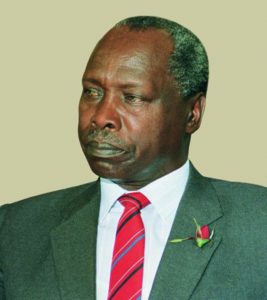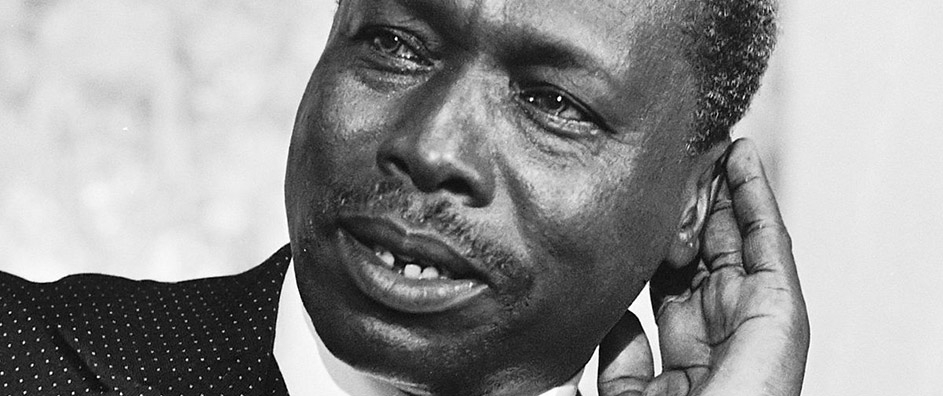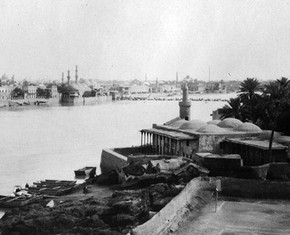The views expressed in our content reflect individual perspectives and do not represent the authoritative views of the Baha'i Faith.
In the previous essay, I explained how I learned my friend Wangari Maathai, the African “Woman of the Trees,” had to hide from persecution in her own country.
Attending a 1993 conference in Kyoto, Japan, to mark the launch of Green Cross International under the leadership of Nobel Laureate and former Soviet President Mikhail Gorbachev, we learned about Wangari’s plight (she would herself receive the Nobel Peace Prize in 2004) when she didn’t make it to Kyoto. Like so many other activists—the people on Earth who speak out for the Earth itself—she faced enormous and even deadly opposition from those who opposed her cause. Wangari suffered for her cause—but, as the Baha’i teachings tell us, her suffering actually gave her the strength to move forward:
The mind and spirit of man advance when he is tried by suffering. The more the ground is ploughed the better the seed will grow, the better the harvest will be. Just as the plough furrows the earth deeply, purifying it of weeds and thistles, so suffering and tribulation free man from the petty affairs of this worldly life until he arrives at a state of complete detachment. His attitude in this world will be that of divine happiness. Man is, so to speak, unripe: the heat of the fire of suffering will mature him. Look back to the times past and you will find that the greatest men have suffered most. – Abdu’l-Baha, Paris Talks, p. 178.

Mikhail Gorbachev
I should explain that for the duration of the conference in Kyoto I served as President Gorbachev’s scheduler and chief of protocol. With the aid of an interpreter, he reviewed my draft, requested one small change, and signed the final version.
I was then faced with a dilemma. In the heat of the moment, I had not fully thought through what to do with the signed letter. The two options that presented themselves were to either issue it to the media in an effort to shame President Moi into action, or to send it only to him and keep the contents entirely private. I opted for the latter, particularly because the letter was in the form of a personal request from President Gorbachev to President Moi and I felt that should be honored.
I got on the phone to the Kenyan embassy in Tokyo and explained why I needed a fax number for President Moi. I was asked to call back in a half hour, and was then given what I was told was the number for a fax machine in the President’s bedroom. The letter was duly sent, but I did not share it with anyone else.
A few months later Wangari came to New York, and we met for dinner. She did not know anything about my role in generating the letter, but once I explained she told me what happened after the fax arrived in the President Moi’s bedroom.

President Moi
For reasons we will probably never know, President Moi issued the full text of the Gorbachev letter to the media—and it quickly became headline news throughout Kenya the following day. He may have thought the letter was going to be leaked and wanted to get ahead of the story, not realizing his was the only copy. At any rate, in speaking to the press in connection with the letter, he claimed to know nothing about Wangari’s inability to travel. With the eyes of the world upon him, he gave the media his personal assurance that he would honor President Gorbachev’s request regarding both her travel arrangements and personal safety.
Wangari wrote about this in her book Unbowed: A Memoir, and described what happened following the press coverage:
My friends relayed this information to me in my safe house and suggested that I come out of hiding to get the travel documents. In their view, given what President Moi had said, it seemed likely that I would be safe. I was persuaded and presented myself to the immigration authorities, who gave me the necessary documents and never again questioned me at the airport in Nairobi about where I was going or why. – p. 248.
As we continued to compare notes at dinner, Wangari took out a folded copy of the Gorbachev letter cut from the front page of a Kenyan newspaper. I know that she travelled for many years with that same copy tucked in her passport … just in case.
















Comments
Sign in or create an account
Continue with Googleor